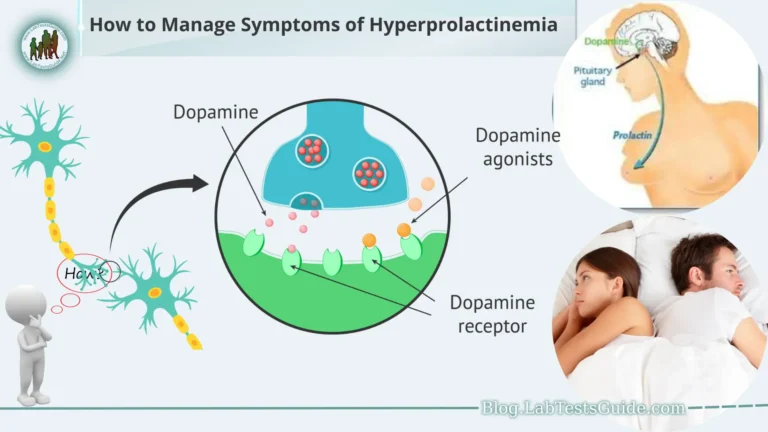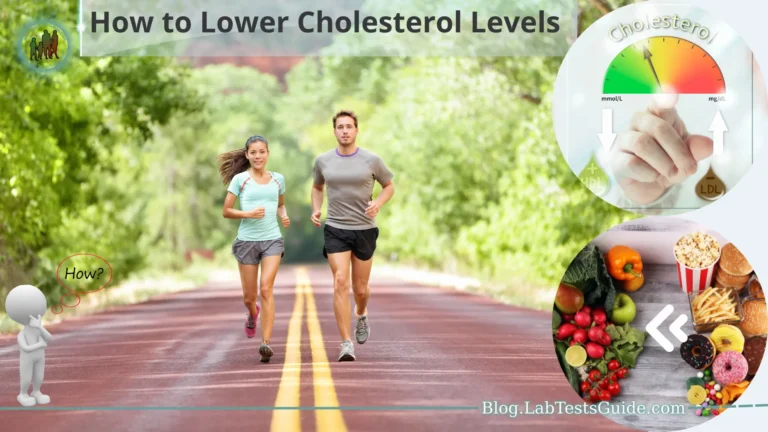The level of testosterone, a vital hormone in both males and females, plays a significant role in various aspects of health and well-being. Testosterone influences muscle mass, bone density, sex drive, fertility, mood, and cognitive function. However, factors such as aging, stress, unhealthy lifestyle choices, and certain medical conditions can contribute to low testosterone levels.

This guide aims to provide you with a comprehensive understanding of testosterone and its importance, along with practical strategies to naturally increase testosterone levels. It will cover lifestyle modifications, dietary considerations, supplements, hormone replacement therapy, and alternative remedies. It’s important to note that before implementing any changes, it is recommended to consult with a healthcare professional to ensure the most appropriate approach for your specific circumstances.
What is Testosterone?
- Testosterone is a hormone produced in the testicles in males and in smaller amounts in the ovaries in females.
- It belongs to a group of hormones called androgens, which are responsible for the development and maintenance of male sexual characteristics.
- Testosterone is an anabolic hormone, meaning it promotes tissue growth and development.
Understanding Testosterone:
Importance of Testosterone Levels:
- Testosterone plays a crucial role in various aspects of health and well-being for both males and females.
- It influences bone density by stimulating the production of new bone cells and maintaining bone mass.
- Testosterone affects the production of red blood cells, contributing to healthy blood production and oxygen delivery.
- It plays a role in fat distribution, influencing body composition and reducing the accumulation of visceral fat.
- Testosterone is involved in the development and maintenance of muscle mass and strength.
- It has an impact on mood and cognitive function, contributing to overall mental well-being.
- Testosterone plays a key role in sexual desire (libido) and fertility in both males and females.
Factors Affecting Testosterone Levels:
- Age: Testosterone levels tend to peak during adolescence and early adulthood and gradually decline with age. The rate of decline varies among individuals.
- Stress: Chronic stress can disrupt hormone balance and lead to decreased testosterone production.
- Lifestyle Choices: Lack of physical activity, poor diet, obesity, and excessive alcohol consumption can contribute to lower testosterone levels.
- Medical Conditions: Certain medical conditions such as hypogonadism, diabetes, obesity, and chronic illness can affect testosterone production.
- Medications: Some medications, including corticosteroids, opioids, and certain hormones, can lower testosterone levels.
Signs and Symptoms of Low Testosterone:
Here are common signs and symptoms associated with low testosterone.
- Reduced Libido: A decrease in sexual desire or a noticeable decline in interest in sexual activity can be a symptom of low testosterone.
- Erectile Dysfunction: Difficulty achieving or maintaining erections can occur due to low testosterone levels. However, it’s important to consider other potential causes of erectile dysfunction as well.
- Fatigue and Reduced Energy Levels: Low testosterone can contribute to persistent fatigue, decreased energy, and a general feeling of low vitality.
- Loss of Muscle Mass and Strength: Testosterone plays a role in muscle development and maintenance. Low levels can result in a decrease in muscle mass and strength, along with a potential increase in body fat.
- Decreased Bone Density: Testosterone helps maintain bone density, and low levels can contribute to decreased bone strength and an increased risk of osteoporosis.
- Mood Changes: Low testosterone can lead to mood swings, irritability, decreased motivation, and feelings of depression.
- Cognitive Difficulties: Some individuals with low testosterone may experience difficulties with memory, concentration, and overall cognitive function.
- Decreased Hair Growth: Testosterone is involved in the growth of facial and body hair. Low levels can result in reduced hair growth or thinning of facial and body hair.
- Changes in Sleep Patterns: Testosterone deficiency can disrupt sleep patterns, leading to insomnia or poor sleep quality.
- Decreased Testicle Size: In males, low testosterone levels may be associated with a reduction in testicle size.
It’s important to note that these symptoms alone may not necessarily indicate low testosterone levels, as they can also be caused by other factors or medical conditions. Proper medical evaluation, including blood tests to measure testosterone levels, is essential for an accurate diagnosis.
Medical Evaluation and Consultation:
Seeing a Healthcare Professional:
If you suspect low testosterone or are experiencing symptoms associated with testosterone deficiency, it is important to seek medical evaluation and consultation. A healthcare professional, such as a primary care physician or an endocrinologist, specializes in hormone-related issues and can provide appropriate guidance and treatment options.
Diagnostic Tests for Testosterone Levels:
During your medical evaluation, the healthcare professional may perform the following diagnostic tests to assess your testosterone levels.
- Blood Test: A blood sample is taken to measure the levels of total testosterone in your bloodstream. This test helps determine if your testosterone levels are within the normal range.
- Hormone Panel: In addition to total testosterone, the healthcare professional may also measure other hormone levels, such as free testosterone (testosterone that is not bound to proteins) and luteinizing hormone (LH), which stimulates testosterone production.
- Additional Tests: Depending on your specific situation, the healthcare professional may order additional tests to evaluate other potential factors contributing to your symptoms, such as thyroid function tests or tests for underlying medical conditions.
The medical evaluation and diagnostic tests will help determine if you have low testosterone levels and identify any underlying causes. Based on the results, the healthcare professional can recommend appropriate treatment options and lifestyle modifications to address your specific needs.
What are Lifestyle Changes to Boost Testosterone:
Regular Exercise and Strength Training:
- Engage in regular physical activity and incorporate both cardiovascular exercises and strength training into your routine.
- Resistance training, such as weightlifting, can be particularly beneficial for boosting testosterone levels.
- Focus on compound exercises that target multiple muscle groups, such as squats, deadlifts, and bench presses.
- Aim for at least 150 minutes of moderate-intensity aerobic activity or 75 minutes of vigorous-intensity aerobic activity each week, as recommended by health guidelines.
Healthy Diet and Nutritional Considerations:
- Maintain a well-balanced diet that includes a variety of nutrient-dense foods.
- Ensure an adequate intake of protein, healthy fats, and carbohydrates.
- Include foods rich in zinc, vitamin D, magnesium, and omega-3 fatty acids, as these nutrients are associated with testosterone production.
- Some examples of testosterone-boosting foods include lean meats, fish, nuts, seeds, fruits, vegetables, and whole grains.
- Limit the consumption of processed foods, sugary snacks, and excessive alcohol, as they can negatively impact testosterone levels.
Sufficient Sleep and Stress Management:
- Get enough sleep to support optimal hormone production and overall health. Aim for 7-9 hours of quality sleep each night.
- Manage stress through relaxation techniques like deep breathing, meditation, yoga, or engaging in activities you enjoy.
- Chronic stress can disrupt hormone balance, including testosterone production.
Weight Management and Body Fat Reduction:
- Maintain a healthy weight and strive to reduce excess body fat, as higher body fat levels can contribute to lower testosterone levels.
- Incorporate regular exercise and a balanced diet to support weight management and fat loss.
Avoidance of Excessive Alcohol Consumption:
- Limit alcohol intake, as excessive alcohol consumption has been associated with lower testosterone levels.
- If you choose to drink, do so in moderation, following recommended guidelines.
Quitting Smoking:
- Smoking has been linked to lower testosterone levels. Quitting smoking can have numerous health benefits, including potential improvements in testosterone production.
Exposure to Sunlight and Vitamin D:
- Spend time outdoors and ensure adequate exposure to sunlight, as sunlight stimulates vitamin D production in the body.
- Vitamin D deficiency has been associated with low testosterone levels, so consider getting your vitamin D levels checked and, if necessary, supplementing with vitamin D.
Incorporating these lifestyle changes can have a positive impact on testosterone levels. However, it’s important to note that the effects may vary among individuals, and results may take time. Consistency and commitment to these changes are key. It’s advisable to consult with a healthcare professional or a registered dietitian for personalized recommendations and guidance based on your specific circumstances.
Specific Foods and Supplements:
Foods to Increase Testosterone:
Include foods in your diet that are known to support testosterone production.
- Foods rich in zinc: Oysters, shellfish, lean meats, poultry, legumes, nuts, and seeds.
- Foods high in vitamin D: Fatty fish (such as salmon and mackerel), fortified dairy products, and egg yolks.
- Foods with magnesium: Leafy green vegetables, nuts, seeds, and whole grains.
- Foods containing omega-3 fatty acids: Fatty fish, flaxseeds, chia seeds, and walnuts.
- Cruciferous vegetables: Broccoli, cabbage, cauliflower, and Brussels sprouts, which may help reduce estrogen levels and promote testosterone production.
- Pomegranates: Studies suggest that pomegranate juice may increase testosterone levels.
- Garlic: Contains compounds that may stimulate testosterone production.
Testosterone-Boosting Supplements:
While it’s important to prioritize a healthy diet, some supplements may support testosterone production. It’s advisable to consult with a healthcare professional before starting any new supplements. Some commonly used supplements include.
- Zinc supplements: Zinc plays a crucial role in testosterone production, and supplementation may be beneficial for individuals with low levels.
- Vitamin D supplements: If you have a vitamin D deficiency, your healthcare professional may recommend supplementation to bring your levels within the optimal range.
- D-Aspartic Acid (D-AA): This amino acid has been linked to increased testosterone production in some studies.
- Fenugreek: It is an herb that has been associated with increased testosterone levels and improved sexual function.
- Tribulus Terrestris: This plant extract is commonly used as a natural testosterone booster, although research results are mixed.
- Ashwagandha: An herb used in traditional medicine, it may help reduce stress and cortisol levels, potentially supporting testosterone production.
- Tongkat Ali: Also known as Longjack, this herb has been used traditionally to boost testosterone levels.
It’s important to remember that supplements should not replace a balanced diet and healthy lifestyle practices. Supplements should be used under the guidance of a healthcare professional and in appropriate dosages. They may not be suitable for everyone, especially those with underlying health conditions or taking certain medications. The efficacy and safety of supplements can vary, so it’s essential to choose reputable brands and follow recommended guidelines.
Hormone Replacement Therapy (HRT):
Overview of HRT:
Hormone Replacement Therapy (HRT) involves the use of medications to supplement or replace hormones that the body is not adequately producing. In the context of testosterone, HRT aims to increase testosterone levels in individuals with diagnosed testosterone deficiency or hypogonadism.
Types of HRT for Testosterone Replacement:
There are different forms of testosterone replacement therapy available, and the most suitable option may vary depending on individual needs and preferences. Some common types of testosterone replacement include.
- Testosterone Injections: Intramuscular injections are administered every few weeks, delivering a controlled dose of testosterone into the body.
- Testosterone Gels and Creams: These topical applications are applied to the skin daily, allowing for absorption of testosterone through the skin.
- Testosterone Patches: Transdermal patches are applied to the skin and deliver a consistent dose of testosterone over a specified period.
- Testosterone Pellets: Small pellets containing testosterone are implanted under the skin, providing a slow release of the hormone over several months.
Risks and Benefits of HRT:
HRT for testosterone replacement can provide significant benefits for individuals with clinically diagnosed testosterone deficiency. Some potential benefits include.
- Increased libido and sexual function
- Improved mood and well-being
- Increased muscle mass and strength
- Enhanced bone density
- Improved cognitive function
- Increased energy levels
- Acne or oily skin
- Fluid retention
- Increased red blood cell count
- Sleep apnea
- Prostate enlargement (in some cases)
- Potential impact on fertility
- Increased risk of cardiovascular events (controversial and requires further research)
The risks and benefits of HRT should be carefully evaluated by a healthcare professional, taking into consideration the individual’s overall health, medical history, and goals. Regular monitoring and follow-up are essential to ensure proper dosing and manage any potential side effects.
Natural Remedies and Alternative Therapies:
Herbal Supplements and Remedies:
Certain herbs and supplements have been traditionally used to support testosterone levels, but it’s essential to note that scientific evidence for their effectiveness is limited. It’s advisable to consult with a healthcare professional before using any herbal supplements. Some commonly mentioned herbal remedies include.
Ashwagandha: An herb used in traditional medicine, it may help reduce stress and cortisol levels, potentially supporting testosterone production.
Tribulus Terrestris: This plant extract has been used traditionally as a natural testosterone booster, although research results are mixed.
Fenugreek: It is an herb that has been associated with increased testosterone levels and improved sexual function.
Tongkat Ali: Also known as Longjack, this herb has been used traditionally to boost testosterone levels.
Acupuncture and Traditional Chinese Medicine:
Some individuals explore acupuncture and Traditional Chinese Medicine (TCM) as alternative approaches to support testosterone levels. Acupuncture involves the insertion of thin needles into specific points on the body to stimulate energy flow. While there is limited scientific evidence supporting its direct impact on testosterone levels, acupuncture may help address underlying health issues or imbalances that could contribute to hormonal health.
Stress-Reducing Techniques:
Chronic stress can negatively impact testosterone levels. Implementing stress-reducing techniques can support hormone balance. Consider incorporating practices such as.
- Mindfulness meditation
- Yoga
- Deep breathing exercises
- Regular exercise
- Adequate sleep
- Engaging in hobbies or activities that promote relaxation
Other Alternative Approaches:
Various other alternative therapies are sometimes explored, although their direct impact on testosterone levels may vary, and scientific evidence is often limited. These approaches may include.
- Chiropractic care
- Herbal medicine
- Traditional Ayurvedic medicine
- Homeopathy
- Naturopathic medicine
It is important to approach alternative therapies with caution and consult with qualified practitioners experienced in these modalities. They can provide guidance on the potential benefits, risks, and appropriateness of these approaches based on your individual circumstances.
FAQs:
Can lifestyle changes alone increase testosterone levels?
Lifestyle changes such as regular exercise, a healthy diet, sufficient sleep, stress management, weight management, and avoiding excessive alcohol consumption can help optimize testosterone levels in some cases. However, if you have clinically diagnosed low testosterone, you may require additional interventions such as hormone replacement therapy (HRT) under the guidance of a healthcare professional.
Can certain foods boost testosterone levels?
While specific foods are not guaranteed to increase testosterone levels significantly, a well-balanced diet that includes nutrient-dense foods can support overall hormonal health. Foods rich in zinc, vitamin D, magnesium, and omega-3 fatty acids may have a positive impact on testosterone production.
Are there natural supplements that can boost testosterone?
Some natural supplements, such as zinc and vitamin D, have been associated with supporting testosterone production. However, it is important to consult with a healthcare professional before taking any supplements, as their efficacy and safety can vary, and they may interact with other medications or have potential side effects.
What is hormone replacement therapy (HRT) for testosterone?
Hormone replacement therapy (HRT) for testosterone involves the use of medications to supplement or replace testosterone in individuals with diagnosed testosterone deficiency or hypogonadism. HRT can be administered through injections, gels/creams, patches, or pellets.
Are there risks associated with testosterone replacement therapy?
Testosterone replacement therapy (TRT) does carry some potential risks and side effects. These can include acne, fluid retention, increased red blood cell count, sleep apnea, prostate enlargement (in some cases), potential impact on fertility, and an increased risk of cardiovascular events (controversial and requires further research). It’s crucial to work closely with a healthcare professional to monitor and manage these potential risks.
Can natural remedies or alternative therapies increase testosterone levels?
Some natural remedies and alternative therapies, such as certain herbs or acupuncture, are often explored as complementary approaches to support hormonal health. While scientific evidence is limited, these modalities may have potential benefits. It’s important to consult with qualified practitioners and discuss their appropriateness for your specific situation.
Conclusion:
Optimizing testosterone levels is important for overall health and well-being, and there are various approaches to achieve this goal. Lifestyle changes, such as regular exercise, a healthy diet, sufficient sleep, stress management, and weight management, can have a positive impact on testosterone levels. Including specific foods rich in nutrients like zinc, vitamin D, magnesium, and omega-3 fatty acids may also be beneficial.
In some cases, hormone replacement therapy (HRT) may be necessary, particularly for individuals with clinically diagnosed low testosterone. HRT involves the use of medications to supplement or replace testosterone, and it should be done under the guidance of a healthcare professional to ensure proper dosing and monitoring.
While natural remedies, supplements, and alternative therapies are often explored, their effectiveness and safety can vary. It’s important to consult with a healthcare professional before using any herbal supplements or undergoing alternative therapies to ensure they are appropriate for your individual circumstances.
Ultimately, a comprehensive approach that combines healthy lifestyle practices, medical evaluation, and professional guidance is crucial in addressing testosterone levels. By working closely with a healthcare professional, you can develop a personalized plan that best suits your needs and promotes optimal hormone balance for improved overall health and well-being.






